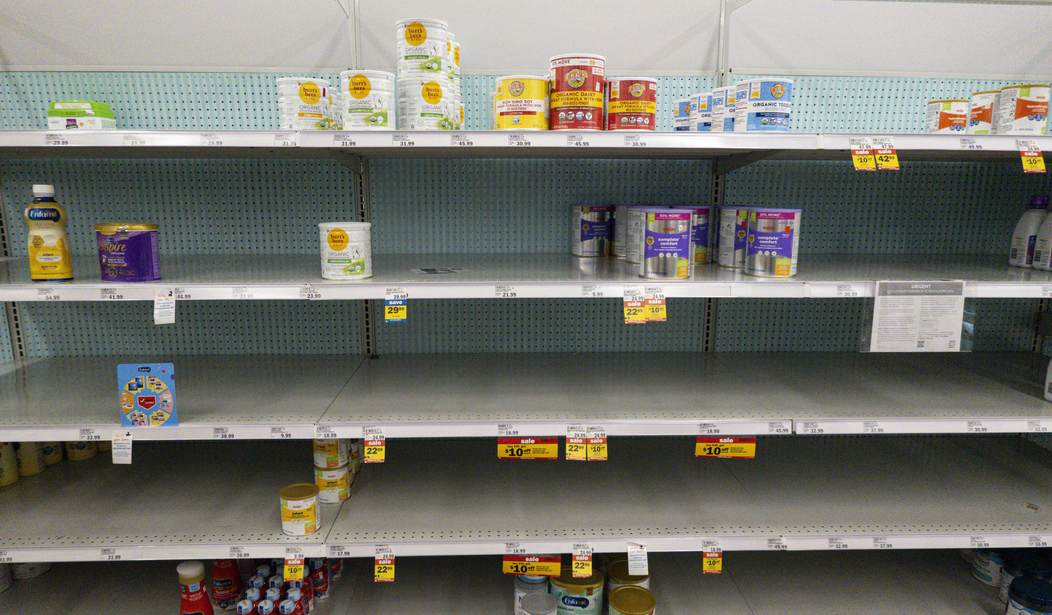A study carried out by a professor at George Mason University reveals that black and low-income families are more impacted by the baby formula shortage than any other demographic.
The baby formula shortage has affected American families for weeks now, especially after the FDA’s shutdown of Abbott Nutrition’s baby formula factory in February. Most of the formula in the United States is produced by a handful of companies, one of them being Abbott. The consequences of the factory's shutdown was both enormous yet predictable.
Dr. Amira Roess, a professor of global and community health at George Mason University, found the ongoing baby formula shortage puts black and low-income infants at a higher risk of malnutrition and other "adverse outcomes" than other demographics (via George Mason University):
U.S. data shows that Black infants are breastfed less than other racial groups and that families on WIC (Special Supplemental Nutrition Program for Women, Infants, and Children) are less likely to breastfeed as well. This means these populations are more likely to rely solely on baby formula. Additionally, Black infants already are at an increased risk of mortality and morbidity and this is in part due to access to quality health care. The baby formula shortage may further this health gap.
Black infants are the most likely of any racial group to rely entirely on formula from birth, according to the CDC. The same is true for babies in low-income families as measured by their eligibility for WIC.
Roess' research also reveals that black mothers mothers often face barriers that make breastfeeding impossible (via George Mason University):
Recommended
More Black mothers have hourly jobs where there is no access to places or time for pumping or refrigeration for storing milk. They often work further away from their home, which translates to less time with their infant and sometimes a lower supply of breastmilk.
As Townhall has reported, President Biden and his administration have handled the crisis poorly. Biden himself made unsupported promises that formula is "heading to U.S. shelves" but has not specified when it will be in stores, nor has he made it clear exactly how much struggling Americans and their children will have access to.
Biden's department of Health and Human Services has largely avoided the problem and instead spent its time establishing a new Office of Environmental Justice.
The report on the study closed with a strong comment about the state of the country that it is putting the health of black infants in jeopardy (via George Mason University):
It is unconscionable that in the U.S. in 2022 this has happened and that we are facing a situation where low-income Black babies remain at higher risk for malnutrition.
But in Biden's America, this is the reality.

























Join the conversation as a VIP Member